Little Red Riding Hood FairyTale: Full Text Story, Video in English Version and Life Lessons
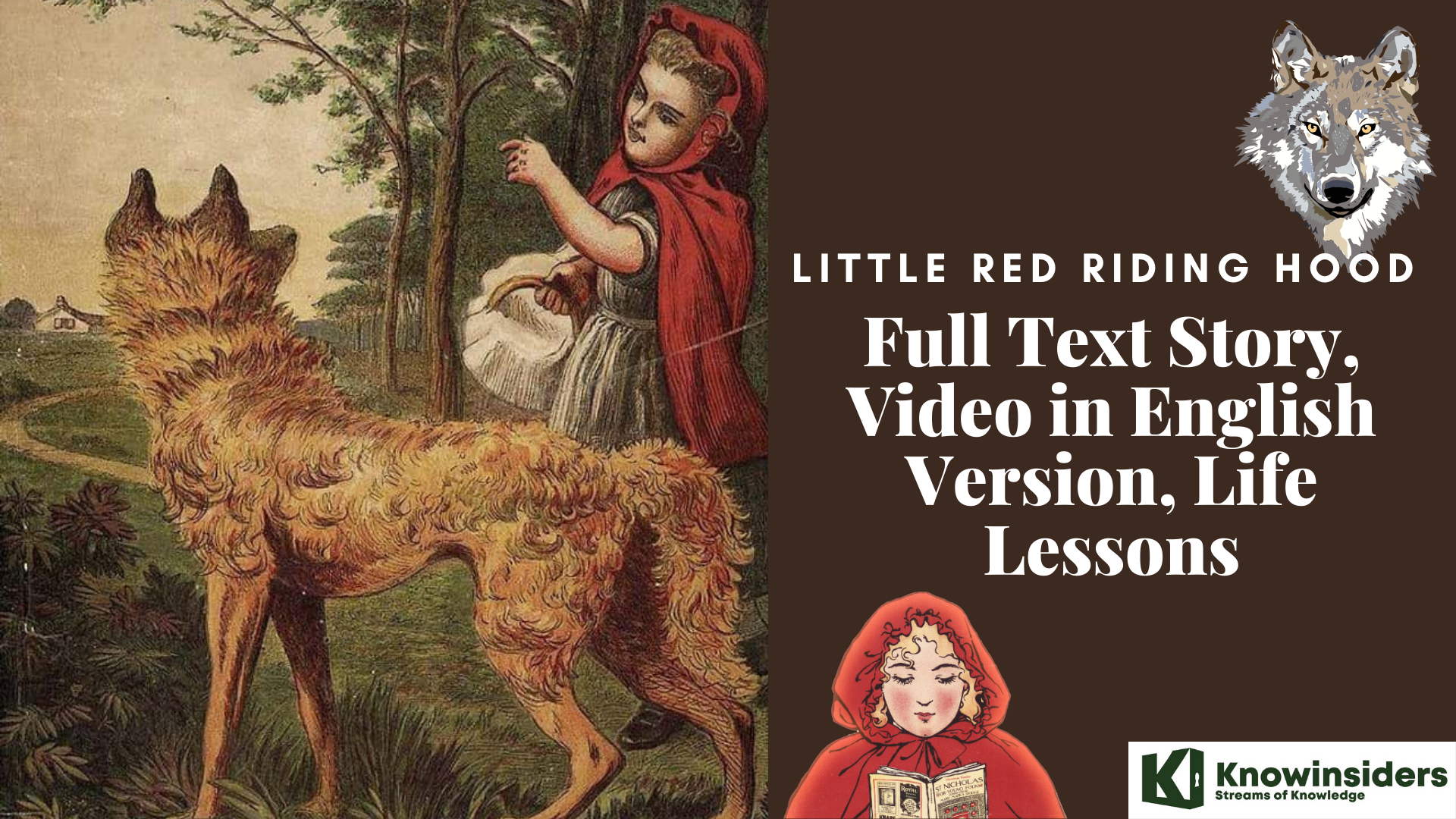 |
| Little Red Riding Hood FairyTale: Full Text Story, Video in English Version, Life Lessons |
"Little Red Riding Hood" is a European fairy tale about a young girl and a Big Bad Wolf. Its origins can be traced back to several pre-17th century European folk tales. The two best-known versions were written by Charles Perrault and the Brothers Grimm.
The story has been changed considerably in various retellings and subjected to numerous modern adaptations and readings. Other names for the story are: "Little Red Cap" or simply "Red Riding Hood". It is number 333 in the Aarne–Thompson classification system for folktales.
Who wrote the story?
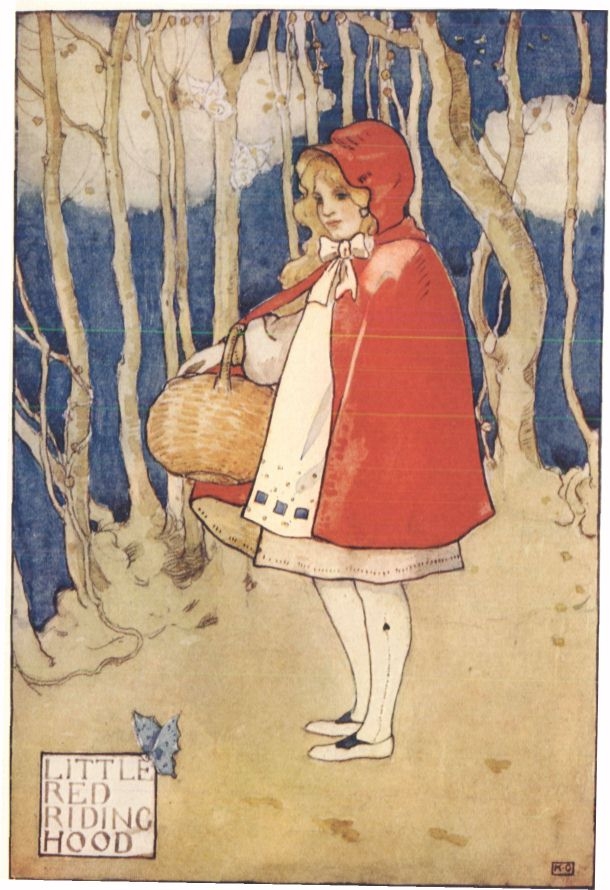 |
| "Little Red Riding Hood", illustrated in a 1927 story anthology. Photo: From Childhood's Favorites and Fairy Stories |
Little Red Riding Hood is perhaps one of the best-known fairy tales. Like most European fairy tales, its origins lie within a vast folk tradition of oral storytelling. No singular author can be credited. The French author Charles Perrault collected these tales together, and published them for the very first time in 1697. Because of this he is generally considered to be the father of the fairy tale genre.
Little Red Riding Hood: Video in English Version
By the early 19th century the tale of Red Riding Hood had been told and retold countless times, producing numerous adaptations. This later version dates from 1810 and was published in Moorfields, London. It is told in the form of a verse poem with alternating unrhymed and rhymed couplets. The clear text, simple language and large colourful illustrations tell us that this chapbook was aimed at young readers.
A History of Little Red Riding Hood
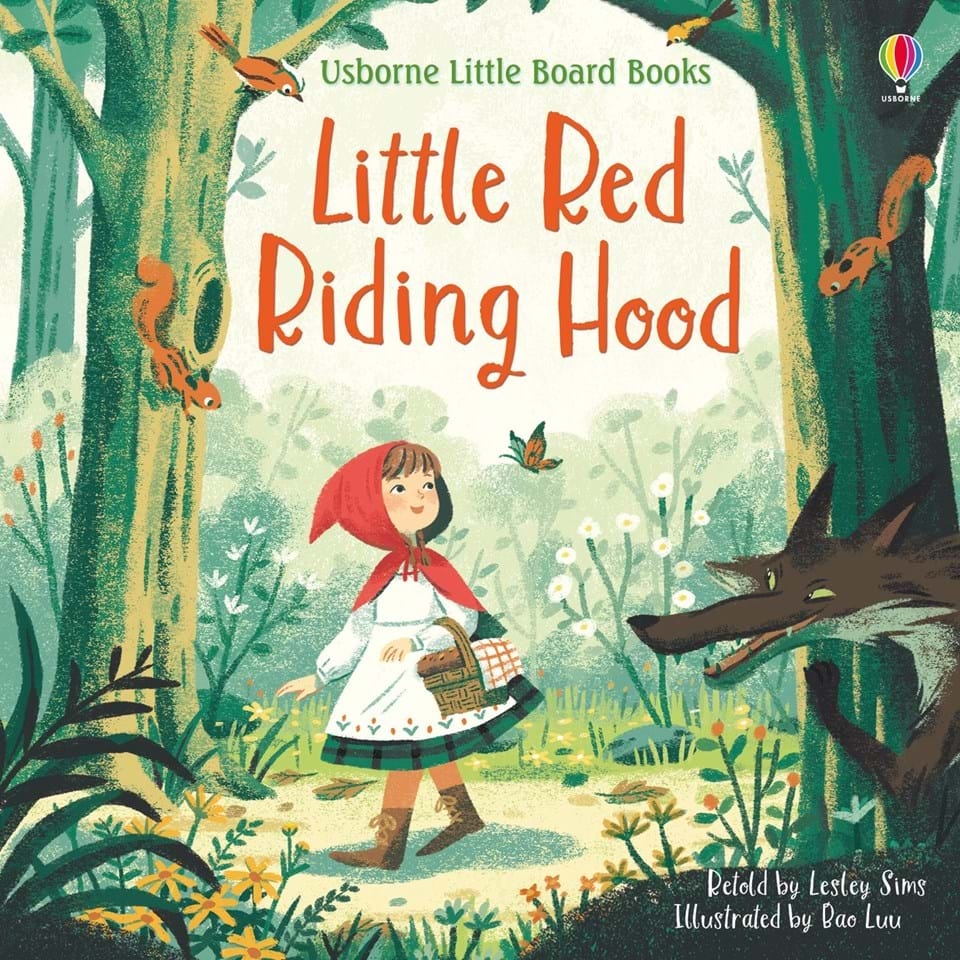 |
| Photo: Amazon. com |
Most everyone is familiar with the tale of “Little Red Riding Hood,” right?
It typically starts with a little girl in a bright red cloak, or “hood,” traveling through the woods alone to get to her grandmother’s house. She encounters a wolf who learns where she is headed. The wolf inevitably beats her there, gets rid of Grandma (in one way or another), and waits for the girl while dressed in a matronly disguise. When Little Red Riding Hood arrives, she naively mistakes the disguised wolf for her grandmother, and gets herself into trouble with her hungry enemy. The story usually ends happily, though, with Little Red Riding Hood (and sometimes her grandmother, too) being rescued by a manly hunter.
Of course, there are many versions. Sometimes Grandma gets locked in the closet instead of eaten, or Grandma’s “ending” isn’t part of the happy ending at all. Perhaps your memories of the story have completely different details!
The variations on the classic tale are as different as the people who tell it. This season, we have a special interest in the little adventurer and her red cloak, so we decided to take a deeper look. We wanted to know how old Little Red Riding Hood’s origins really are, and how much the story has evolved through the years.
Durham University anthropologist Jamie Tehrani traced Red Riding Hood’s roots to find the origins. He found that the story is not only a lot older than the Brothers Grimm (who are credited with creating the version most of us know today), but it can also be traced to multiple parts of the world. Every part of the world tells the story with its own small deviations.
Interestingly, the morals seem to speak to cultural values. Take the “classic” Grimm’s version—readers learn that children like Little Red Riding Hood shouldn’t talk to strangers. The Grimm story also teaches children to always obey a parent’s instructions. Little Red Riding Hood only gets into a conversation with the wolf because she strays off the path to her grandmother’s house, something her mother had strictly warned against. Religiously and culturally, “don’t speak to strangers” and “stay on the straight and narrow” are both common expressions in the Western world.
Older versions like the 14th century stories from Italy and Austria don’t leave out any of the bloody details. In one, Little Red Riding Hood is tricked into eating her own grandmother, and there are certainly no happy endings in sight (perhaps inspired by the true story of Peter Stumpp, the “Werewolf of Bedburg”). In Charles Perrault’s version from 1697, Little Red Riding Hood gets into bed with “Grandma” before getting eaten. Perrault’s story is more of a warning to young girls against being seduced by men’s trickery.
If you can believe it, when Wilhelm and Jacob Grimm got their hands on this story, they decided to make it a little more lighthearted! They at least allowed a happy ending, with the huntsman saving the day. As time goes by, we see more and more variations pop up. Each new take presents different perspectives, different protagonists, and different settings.
Which brings us to Bethan Woollvin’s Little Red. In this retelling, Little Red does meet a wolf in the woods on her way to her grandma’s house, but forget the naïve girl you thought you knew. Little Red is just as perceptive and cunning as her enemy. She knows exactly what this wolf is up to, and she isn’t going to let him get away with it. When Little Red sees the giant furry creature dressed in her grandma’s clothes, barely fitting in grandma’s bed, and very obviously NOT grandma, she knows exactly what to do. The prospect of facing the wolf might have scared some little girls, but not this little girl!
Little Red relies on her own bravery and wit, and she does just fine by herself, thank you very much! We love that this subversive retelling gives little girls all the power.
Different Intepretations of “Little Red Riding Hood”
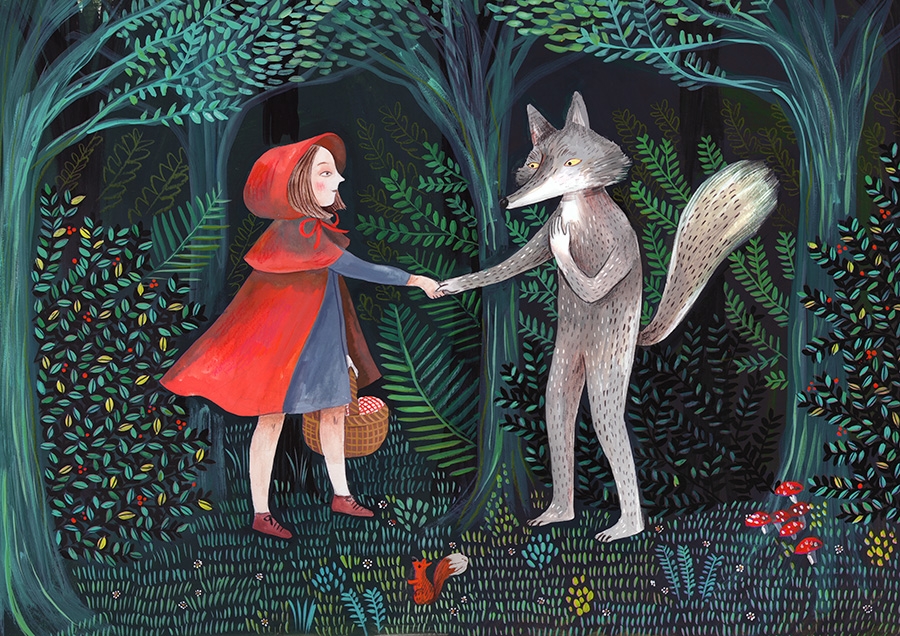 |
| Photo: Helena Perez Garcia |
Apart from the overt warning about talking to strangers, there are many interpretations of the classic fairy tale, many of them sexual. Some are listed below.
Natural cycles
Folklorists and cultural anthropologists, such as P. Saintyves and Edward Burnett Tylor, saw "Little Red Riding Hood" in terms of solar myths and other naturally occurring cycles. Her red hood could represent the bright sun which is ultimately swallowed by the terrible night (the wolf), and the variations in which she is cut out of the wolf's belly represent the dawn. In this interpretation, there is a connection between the wolf of this tale and Sköll, the wolf in Norse mythology that will swallow the personified Sun at Ragnarök, or Fenrir. Alternatively, the tale could be about the season of spring or the month of May, escaping the winter.
Rite
The tale has been interpreted as a puberty rite, stemming from a prehistoric origin (sometimes an origin stemming from a previous matriarchal era). The girl, leaving home, enters a liminal state and by going through the acts of the tale, is transformed into an adult woman by the act of coming out of the wolf's stomach.
Rebirth
Bruno Bettelheim, in The Uses of Enchantment: The Meaning and Importance of Fairy Tales (1976), recast the Little Red Riding Hood motif in terms of classic Freudian analysis, that shows how fairy tales educate, support, and liberate children's emotions. The motif of the huntsman cutting open the wolf he interpreted as a "rebirth"; the girl who foolishly listened to the wolf has been reborn as a new person.
Norse myth
The poem "Þrymskviða" from the Poetic Edda mirrors some elements of Red Riding Hood. Loki's explanations for the strange behavior of "Freyja" (actually Thor disguised as Freyja) mirror the wolf's explanations for his strange appearance. The red hood has often been given great importance in many interpretations, with a significance from the dawn to blood.
Erotic, romantic, or rape connotations
A sexual analysis of the tale may also include negative connotations in terms of rape or abduction. In Against Our Will, Susan Brownmiller describes the fairy tale as a description of rape. However, many revisionist retellings choose to focus on empowerment, and depict Little Red Riding Hood or the grandmother successfully defending herself against the wolf.
Such tellings bear some similarity to the "animal bridegroom" tales, such as Beauty and the Beast or The Frog Prince, but where the heroines of those tales revert the hero to a prince, these tellings of Little Red Riding Hood reveal to the heroine that she has a wild nature like the hero's. These interpretations refuse to characterize Little Red Riding Hood as a victim; these are tales of female empowerment.
The gender role varies according to the professional level and gender of the artist that illustrates these characters. Female artists tend to reflect a stereotypic aggressive male role on the wolf, while male artists were more likely to eroticize the characters. In general, professional artists do not imply sexual intent between the characters, and produce family-friendly illustrations.
Little Red Riding Hood: Full Text To Read For Your Kids
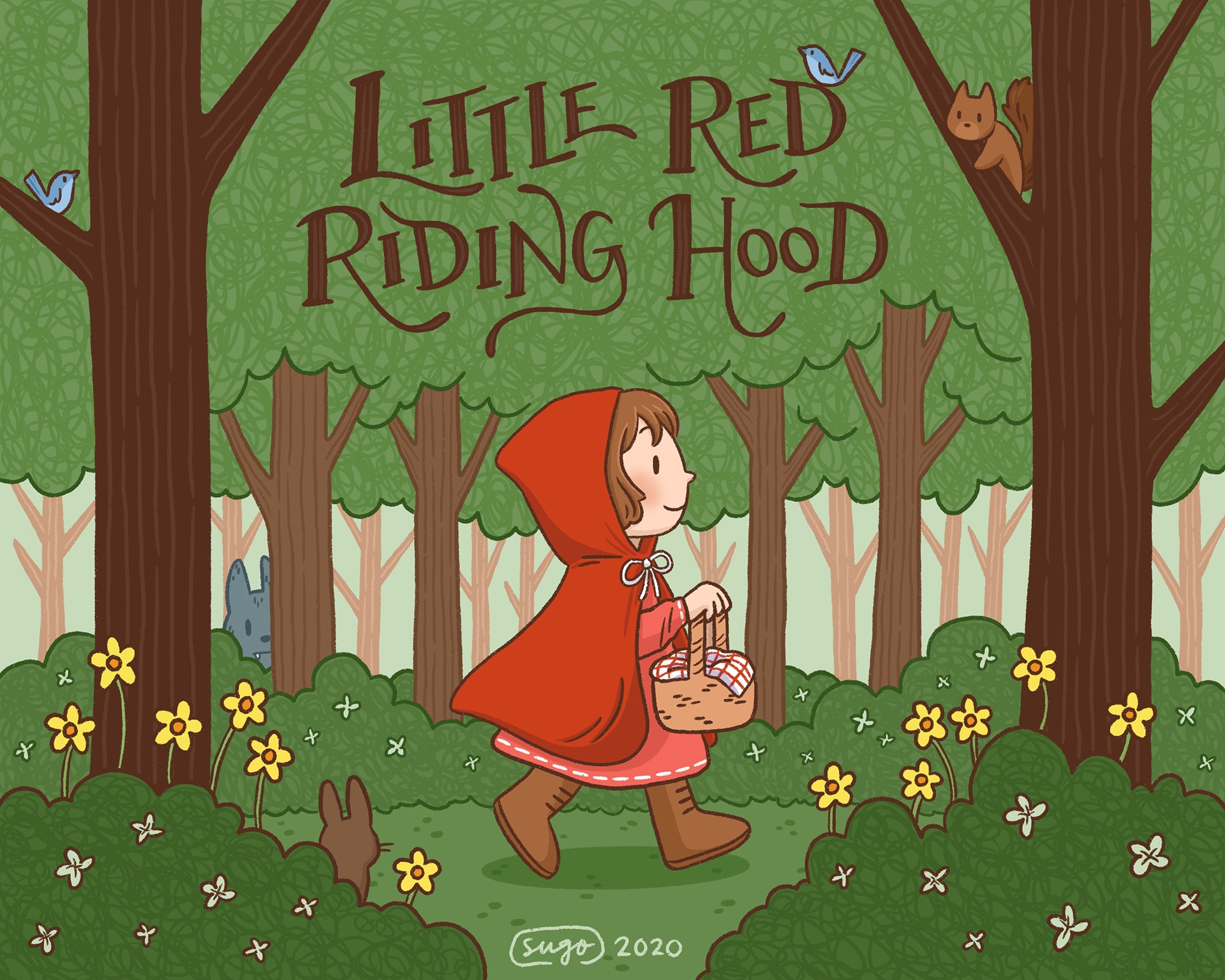 |
| Photo: Sugo Studio |
Once upon a time there was a dear little girl who was loved by every one who looked at her, but most of all by her grandmother, and there was nothing that she would not have given to the child. Once she gave her a little cap of red velvet, which suited her so well that she would never wear anything else. So she was always called Little Red Riding Hood.
One day her mother said to her, "Come, Little Red Riding Hood, here is a piece of cake and a bottle of wine. Take them to your grandmother, she is ill and weak, and they will do her good. Set out before it gets hot, and when you are going, walk nicely and quietly and do not run off the path, or you may fall and break the bottle, and then your grandmother will get nothing. And when you go into her room, don't forget to say, good-morning, and don't peep into every corner before you do it."
I will take great care, said Little Red Riding Hood to her mother, and gave her hand on it.
The grandmother lived out in the wood, half a league from the village, and just as Little Red Riding Hood entered the wood, a wolf met her. Little Red Riding Hood did not know what a wicked creature he was, and was not at all afraid of him.
"Good-day, Little Red Riding Hood," said he.
"Thank you kindly, wolf."
"Whither away so early, Little Red Riding Hood?"
"To my grandmother's."
"What have you got in your apron?"
"Cake and wine. Yesterday was baking-day, so poor sick grandmother is to have something good, to make her stronger."
"Where does your grandmother live, Little Red Riding Hood?"
"A good quarter of a league farther on in the wood. Her house stands under the three large oak-trees, the nut-trees are just below. You surely must know it," replied Little Red Riding Hood.
The wolf thought to himself, "What a tender young creature. What a nice plump mouthful, she will be better to eat than the old woman. I must act craftily, so as to catch both." So he walked for a short time by the side of Little Red Riding Hood, and then he said, "see Little Red Riding Hood, how pretty the flowers are about here. Why do you not look round. I believe, too, that you do not hear how sweetly the little birds are singing. You walk gravely along as if you were going to school, while everything else out here in the wood is merry."
Little Red Riding Hood raised her eyes, and when she saw the sunbeams dancing here and there through the trees, and pretty flowers growing everywhere, she thought, suppose I take grandmother a fresh nosegay. That would please her too. It is so early in the day that I shall still get there in good time. And so she ran from the path into the wood to look for flowers. And whenever she had picked one, she fancied that she saw a still prettier one farther on, and ran after it, and so got deeper and deeper into the wood.
Meanwhile the wolf ran straight to the grandmother's house and knocked at the door.
"Who is there?"
"Little Red Riding Hood," replied the wolf. "She is bringing cake and wine. Open the door."
"Lift the latch," called out the grandmother, "I am too weak, and cannot get up."
The wolf lifted the latch, the door sprang open, and without saying a word he went straight to the grandmother's bed, and devoured her. Then he put on her clothes, dressed himself in her cap, laid himself in bed and drew the curtains.
Little Red Riding Hood, however, had been running about picking flowers, and when she had gathered so many that she could carry no more, she remembered her grandmother, and set out on the way to her.
She was surprised to find the cottage-door standing open, and when she went into the room, she had such a strange feeling that she said to herself, oh dear, how uneasy I feel to-day, and at other times I like being with grandmother so much.
She called out, "Good morning," but received no answer. So she went to the bed and drew back the curtains. There lay her grandmother with her cap pulled far over her face, and looking very strange.
"Oh, grandmother," she said, "what big ears you have."
"The better to hear you with, my child," was the reply.
"But, grandmother, what big eyes you have," she said.
"The better to see you with, my dear."
"But, grandmother, what large hands you have."
"The better to hug you with."
"Oh, but, grandmother, what a terrible big mouth you have."
"The better to eat you with."
And scarcely had the wolf said this, than with one bound he was out of bed and swallowed up Little Red Riding Hood.
When the wolf had appeased his appetite, he lay down again in the bed, fell asleep and began to snore very loud. The huntsman was just passing the house, and thought to himself, how the old woman is snoring. I must just see if she wants anything.
So he went into the room, and when he came to the bed, he saw that the wolf was lying in it. "Do I find you here, you old sinner," said he. "I have long sought you."
Then just as he was going to fire at him, it occurred to him that the wolf might have devoured the grandmother, and that she might still be saved, so he did not fire, but took a pair of scissors, and began to cut open the stomach of the sleeping wolf.
When he had made two snips, he saw the Little Red Riding Hood shining, and then he made two snips more, and the little girl sprang out, crying, "Ah, how frightened I have been. How dark it was inside the wolf."
And after that the aged grandmother came out alive also, but scarcely able to breathe. Little Red Riding Hood, however, quickly fetched great stones with which they filled the wolf's belly, and when he awoke, he wanted to run away, but the stones were so heavy that he collapsed at once, and fell dead.
Then all three were delighted. The huntsman drew off the wolf's skin and went home with it. The grandmother ate the cake and drank the wine which Little Red Riding Hood had brought, and revived, but Little Red Riding Hood thought to herself, as long as I live, I will never by myself leave the path, to run into the wood, when my mother has forbidden me to do so.
It is also related that once when Little Red Riding Hood was again taking cakes to the old grandmother, another wolf spoke to her, and tried to entice her from the path. Little Red Riding Hood, however, was on her guard, and went straight forward on her way, and told her grandmother that she had met the wolf, and that he had said good-morning to her, but with such a wicked look in his eyes, that if they had not been on the public road she was certain he would have eaten her up. "Well," said the grandmother, "we will shut the door, that he may not come in."
Soon afterwards the wolf knocked, and cried, "open the door, grandmother, I am Little Red Riding Hood, and am bringing you some cakes."
But they did not speak, or open the door, so the grey-beard stole twice or thrice round the house, and at last jumped on the roof, intending to wait until Little Red Riding Hood went home in the evening, and then to steal after her and devour her in the darkness. But the grandmother saw what was in his thoughts. In front of the house was a great stone trough, so she said to the child, take the pail, Little Red Riding Hood. I made some sausages yesterday, so carry the water in which I boiled them to the trough. Little Red Riding Hood carried until the great trough was quite full. Then the smell of the sausages reached the wolf, and he sniffed and peeped down, and at last stretched out his neck so far that he could no longer keep his footing and began to slip, and slipped down from the roof straight into the great trough, and was drowned. But Little Red Riding Hood went joyously home, and no one ever did anything to harm her again.
Little Red Riding Hood - Charles Perrault Version (Full Text)Once upon a time there lived in a certain village a little country girl, the prettiest creature who was ever seen. Her mother was excessively fond of her; and her grandmother doted on her still more. This good woman had a little red riding hood made for her. It suited the girl so extremely well that everybody called her Little Red Riding Hood. One day her mother, having made some cakes, said to her, "Go, my dear, and see how your grandmother is doing, for I hear she has been very ill. Take her a cake, and this little pot of butter." Little Red Riding Hood set out immediately to go to her grandmother, who lived in another village. As she was going through the wood, she met with a wolf, who had a very great mind to eat her up, but he dared not, because of some woodcutters working nearby in the forest. He asked her where she was going. The poor child, who did not know that it was dangerous to stay and talk to a wolf, said to him, "I am going to see my grandmother and carry her a cake and a little pot of butter from my mother." "Does she live far off?" said the wolf "Oh I say," answered Little Red Riding Hood; "it is beyond that mill you see there, at the first house in the village." "Well," said the wolf, "and I'll go and see her too. I'll go this way and go you that, and we shall see who will be there first." The wolf ran as fast as he could, taking the shortest path, and the little girl took a roundabout way, entertaining herself by gathering nuts, running after butterflies, and gathering bouquets of little flowers. It was not long before the wolf arrived at the old woman's house. He knocked at the door: tap, tap. "Who's there?" "Your grandchild, Little Red Riding Hood," replied the wolf, counterfeiting her voice; "who has brought you a cake and a little pot of butter sent you by mother." The good grandmother, who was in bed, because she was somewhat ill, cried out, "Pull the bobbin, and the latch will go up." The wolf pulled the bobbin, and the door opened, and then he immediately fell upon the good woman and ate her up in a moment, for it been more than three days since he had eaten. He then shut the door and got into the grandmother's bed, expecting Little Red Riding Hood, who came some time afterwards and knocked at the door: tap, tap. "Who's there?" Little Red Riding Hood, hearing the big voice of the wolf, was at first afraid; but believing her grandmother had a cold and was hoarse, answered, "It is your grandchild Little Red Riding Hood, who has brought you a cake and a little pot of butter mother sends you." The wolf cried out to her, softening his voice as much as he could, "Pull the bobbin, and the latch will go up." Little Red Riding Hood pulled the bobbin, and the door opened. The wolf, seeing her come in, said to her, hiding himself under the bedclothes, "Put the cake and the little pot of butter upon the stool, and come get into bed with me." Little Red Riding Hood took off her clothes and got into bed. She was greatly amazed to see how her grandmother looked in her nightclothes, and said to her, "Grandmother, what big arms you have!" "All the better to hug you with, my dear." "Grandmother, what big legs you have!" "All the better to run with, my child." "Grandmother, what big ears you have!" "All the better to hear with, my child." "Grandmother, what big eyes you have!" "All the better to see with, my child." "Grandmother, what big teeth you have got!" "All the better to eat you up with." And, saying these words, this wicked wolf fell upon Little Red Riding Hood, and ate her all up. Moral: Children, especially attractive, well bred young ladies, should never talk to strangers, for if they should do so, they may well provide dinner for a wolf. I say "wolf," but there are various kinds of wolves. There are also those who are charming, quiet, polite, unassuming, complacent, and sweet, who pursue young women at home and in the streets. And unfortunately, it is these gentle wolves who are the most dangerous ones of all. |
Little Red Cap - Jacob and Wilhelm Grimm Version (Full Text)Once upon a time there was a sweet little girl. Everyone who saw her liked her, but most of all her grandmother, who did not know what to give the child next. Once she gave her a little cap made of red velvet. Because it suited her so well, and she wanted to wear it all the time, she came to be known as Little Red Cap. One day her mother said to her, "Come Little Red Cap. Here is a piece of cake and a bottle of wine. Take them to your grandmother. She is sick and weak, and they will do her well. Mind your manners and give her my greetings. Behave yourself on the way, and do not leave the path, or you might fall down and break the glass, and then there will be nothing for your sick grandmother." Little Red Cap promised to obey her mother. The grandmother lived out in the woods, a half hour from the village. When Little Red Cap entered the woods a wolf came up to her. She did not know what a wicked animal he was, and was not afraid of him. "Good day to you, Little Red Cap." "Thank you, wolf." "Where are you going so early, Little Red Cap?" "To grandmother's." "And what are you carrying under your apron?" "Grandmother is sick and weak, and I am taking her some cake and wine. We baked yesterday, and they should give her strength." "Little Red Cap, just where does your grandmother live?" "Her house is a good quarter hour from here in the woods, under the three large oak trees. There's a hedge of hazel bushes there. You must know the place," said Little Red Cap. The wolf thought to himself, "Now there is a tasty bite for me. Just how are you going to catch her?" Then he said, "Listen, Little Red Cap, haven't you seen the beautiful flowers that are blossoming in the woods? Why don't you go and take a look? And I don't believe you can hear how beautifully the birds are singing. You are walking along as though you were on your way to school in the village. It is very beautiful in the woods." Little Red Cap opened her eyes and saw the sunlight breaking through the trees and how the ground was covered with beautiful flowers. She thought, "If a take a bouquet to grandmother, she will be very pleased. Anyway, it is still early, and I'll be home on time." And she ran off into the woods looking for flowers. Each time she picked one she thought that she could see an even more beautiful one a little way off, and she ran after it, going further and further into the woods. But the wolf ran straight to the grandmother's house and knocked on the door. "Who's there?" "Little Red Cap. I'm bringing you some cake and wine. Open the door for me." "Just press the latch," called out the grandmother. "I'm too weak to get up." The wolf pressed the latch, and the door opened. He stepped inside, went straight to the grandmother's bed, and ate her up. Then he took her clothes, put them on, and put her cap on his head. He got into her bed and pulled the curtains shut. Little Red Cap had run after flowers, and did not continue on her way to grandmother's until she had gathered all that she could carry. When she arrived, she found, to her surprise, that the door was open. She walked into the parlor, and everything looked so strange that she thought, "Oh, my God, why am I so afraid? I usually like it at grandmother's." Then she went to the bed and pulled back the curtains. Grandmother was lying there with her cap pulled down over her face and looking very strange. "Oh, grandmother, what big ears you have!" "All the better to hear you with." "Oh, grandmother, what big eyes you have!" "All the better to see you with." "Oh, grandmother, what big hands you have!" "All the better to grab you with!" "Oh, grandmother, what a horribly big mouth you have!" "All the better to eat you with!" And with that he jumped out of bed, jumped on top of poor Little Red Cap, and ate her up. As soon as the wolf had finished this tasty bite, he climbed back into bed, fell asleep, and began to snore very loudly. A huntsman was just passing by. He thought it strange that the old woman was snoring so loudly, so he decided to take a look. He stepped inside, and in the bed there lay the wolf that he had been hunting for such a long time. "He has eaten the grandmother, but perhaps she still can be saved. I won't shoot him," thought the huntsman. So he took a pair of scissors and cut open his belly. He had cut only a few strokes when he saw the red cap shining through. He cut a little more, and the girl jumped out and cried, "Oh, I was so frightened! It was so dark inside the wolf's body!" And then the grandmother came out alive as well. Then Little Red Cap fetched some large heavy stones. They filled the wolf's body with them, and when he woke up and tried to run away, the stones were so heavy that he fell down dead. The three of them were happy. The huntsman took the wolf's pelt. The grandmother ate the cake and drank the wine that Little Red Cap had brought. And Little Red Cap thought to herself, "As long as I live, I will never leave the path and run off into the woods by myself if mother tells me not to." They also tell how Little Red Cap was taking some baked things to her grandmother another time, when another wolf spoke to her and wanted her to leave the path. But Little Red Cap took care and went straight to grandmother's. She told her that she had seen the wolf, and that he had wished her a good day, but had stared at her in a wicked manner. "If we hadn't been on a public road, he would have eaten me up," she said. "Come," said the grandmother. "Let's lock the door, so he can't get in." Soon afterward the wolf knocked on the door and called out, "Open up, grandmother. It's Little Red Cap, and I'm bringing you some baked things." They remained silent, and did not open the door. The wicked one walked around the house several times, and finally jumped onto the roof. He wanted to wait until Little Red Cap went home that evening, then follow her and eat her up in the darkness. But the grandmother saw what he was up to. There was a large stone trough in front of the house. "Fetch a bucket, Little Red Cap," she said. "Yesterday I cooked some sausage. Carry the water that I boiled them with to the trough." Little Red Cap carried water until the large, large trough was clear full. The smell of sausage arose into the wolf's nose. He sniffed and looked down, stretching his neck so long that he could no longer hold himself, and he began to slide. He slid off the roof, fell into the trough, and drowned. And Little Red Cap returned home happily and safely. |
What's the meaning of the story?Like most fairy tales, Little Red Riding Hood has a moral or cautionary tale at its heart. The story revolves around a predator, 'so artful and strong', who pretends to be someone he is not, and a little girl who is too trusting. The moral of the story is that people are not always who they appear to be, and strangers are not to be trusted. Even though Red Riding Hood noticed that her grandmother's arms were covered in fur, and her ears were pointy, she was too trusting of the wolf's cunning words: 'Grandmamma what great arms, And your ears look so wild; They are better to cuddle, and to hear my dear child.' |
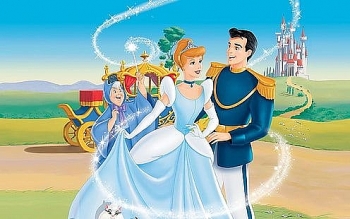 Cinderella FairyTale: Full Text Story, Video in English Version, Life Lessons Cinderella FairyTale: Full Text Story, Video in English Version, Life Lessons Reading or watching the best fairy tale of Cinderella (The Little Glass Slipper): Here are the full text story, beautiful pictures and best video in ... |
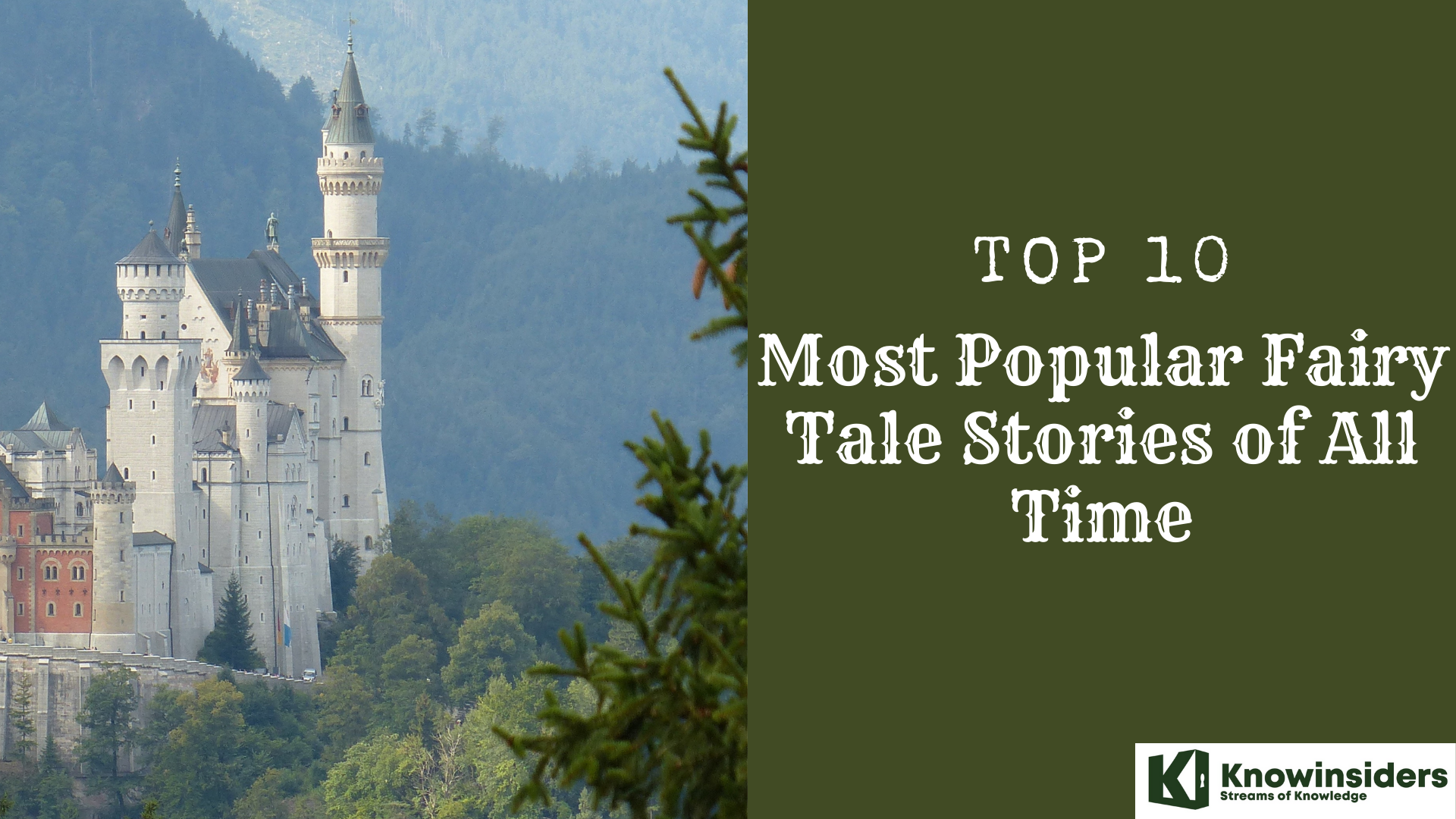 Top 10 Most's Popular Fairy Tale Stories of All Time: Life Lessons and Values Top 10 Most's Popular Fairy Tale Stories of All Time: Life Lessons and Values Fairy tales are not just for kids alone, and a lot of old tales still carry precious life lessons and historical, and cultural values. Here ... |
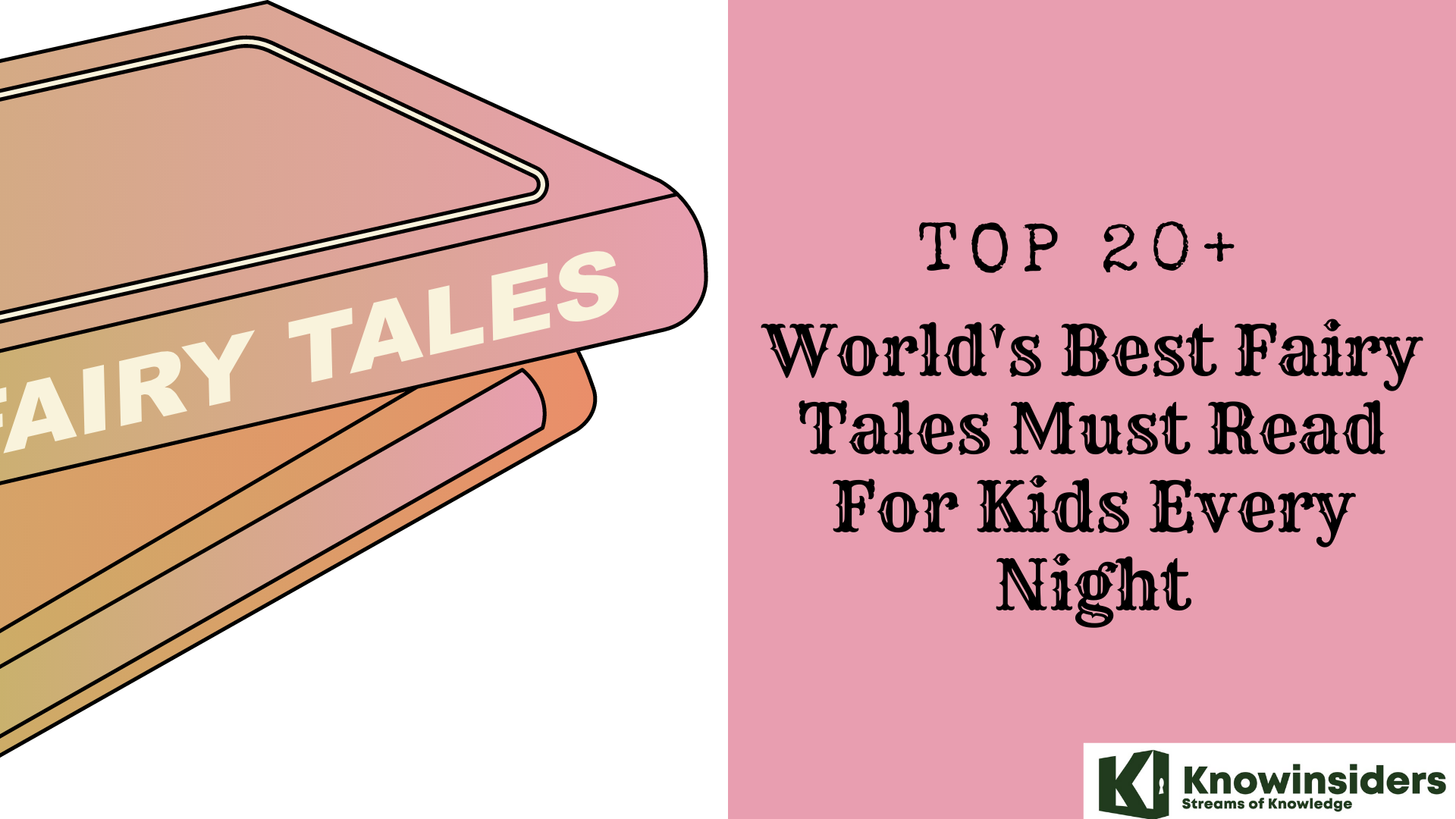 Top 20+ World's Best Fairy Tales (Full Text) Must Read For Kids Every Night Top 20+ World's Best Fairy Tales (Full Text) Must Read For Kids Every Night A good story is all kids need before their bedtime, and these best fairy tales will help your children fall to sleep much easier. |
 Only in China: Top 5 Strangest Stories Only in China: Top 5 Strangest Stories Only in China: China is a country that has one of the largest populations in the world, it has a massive economy, and it is ... |


























